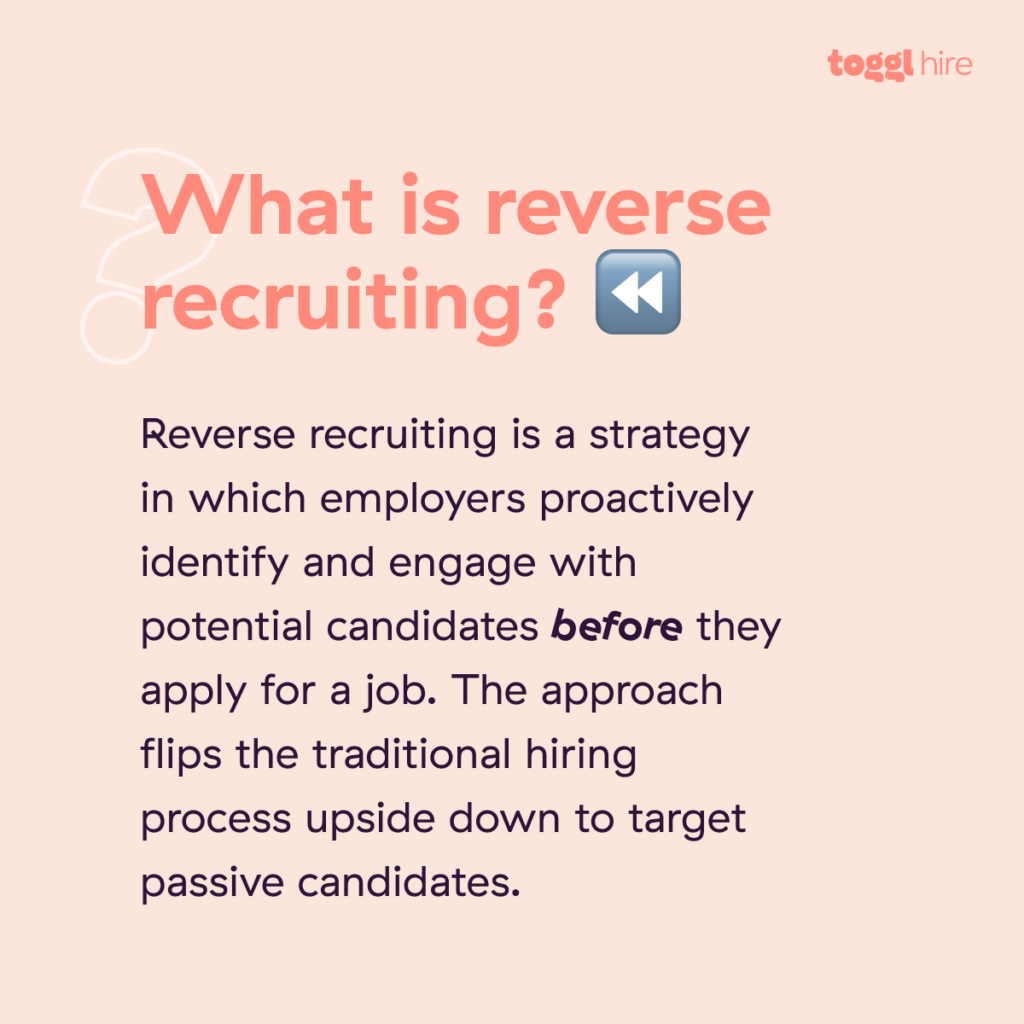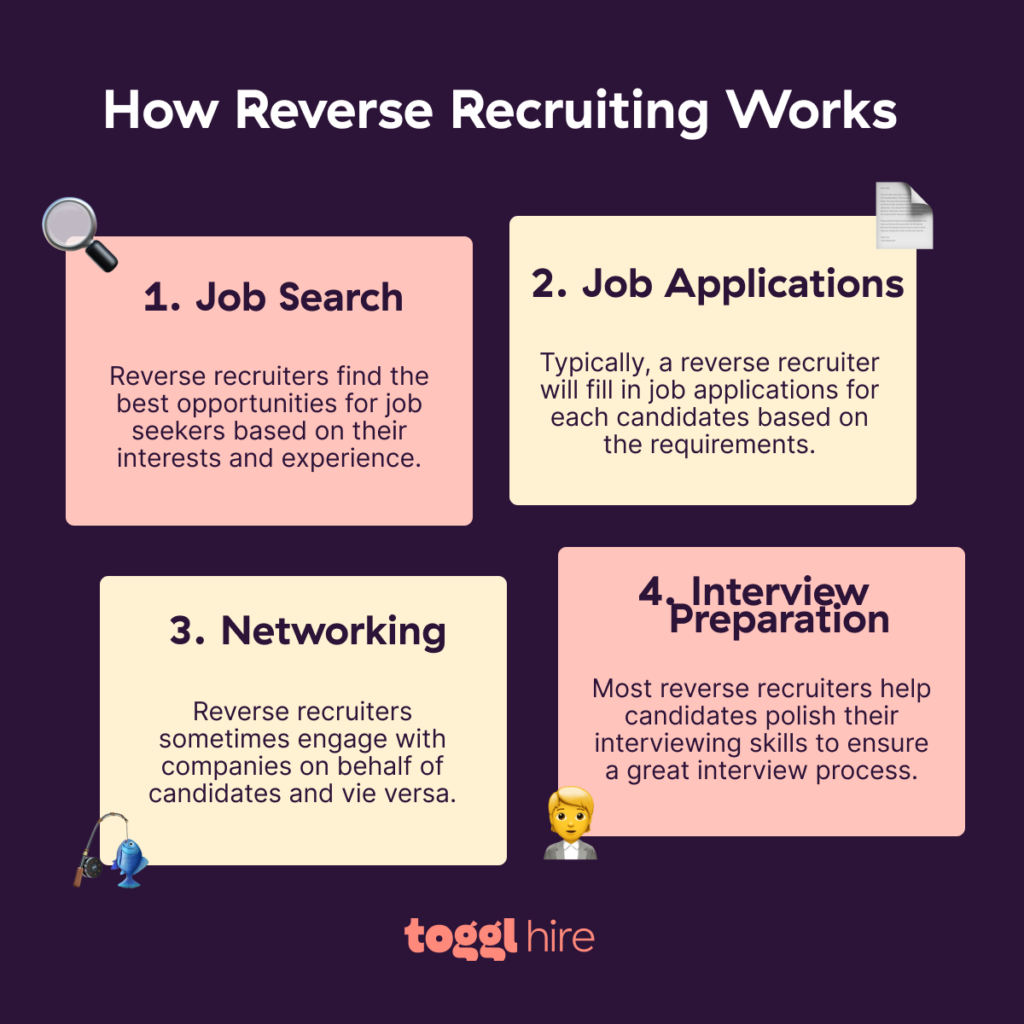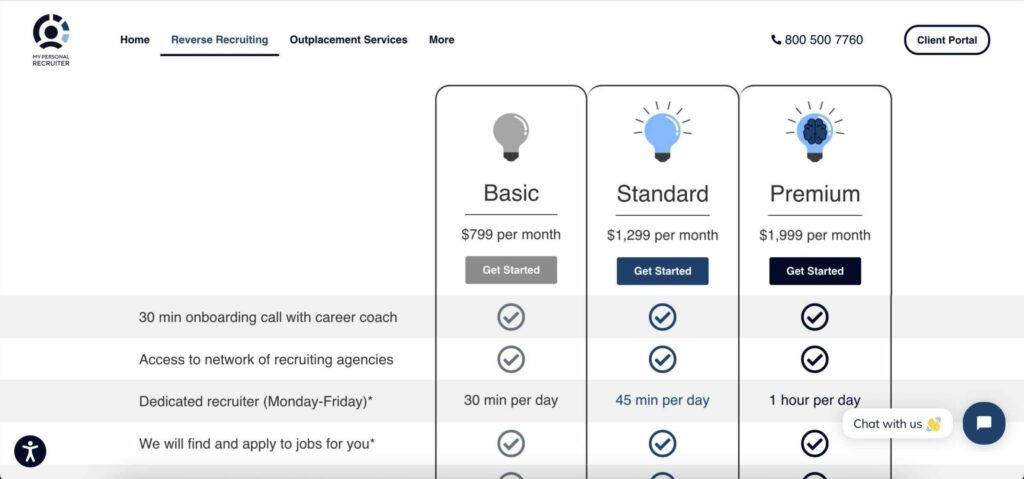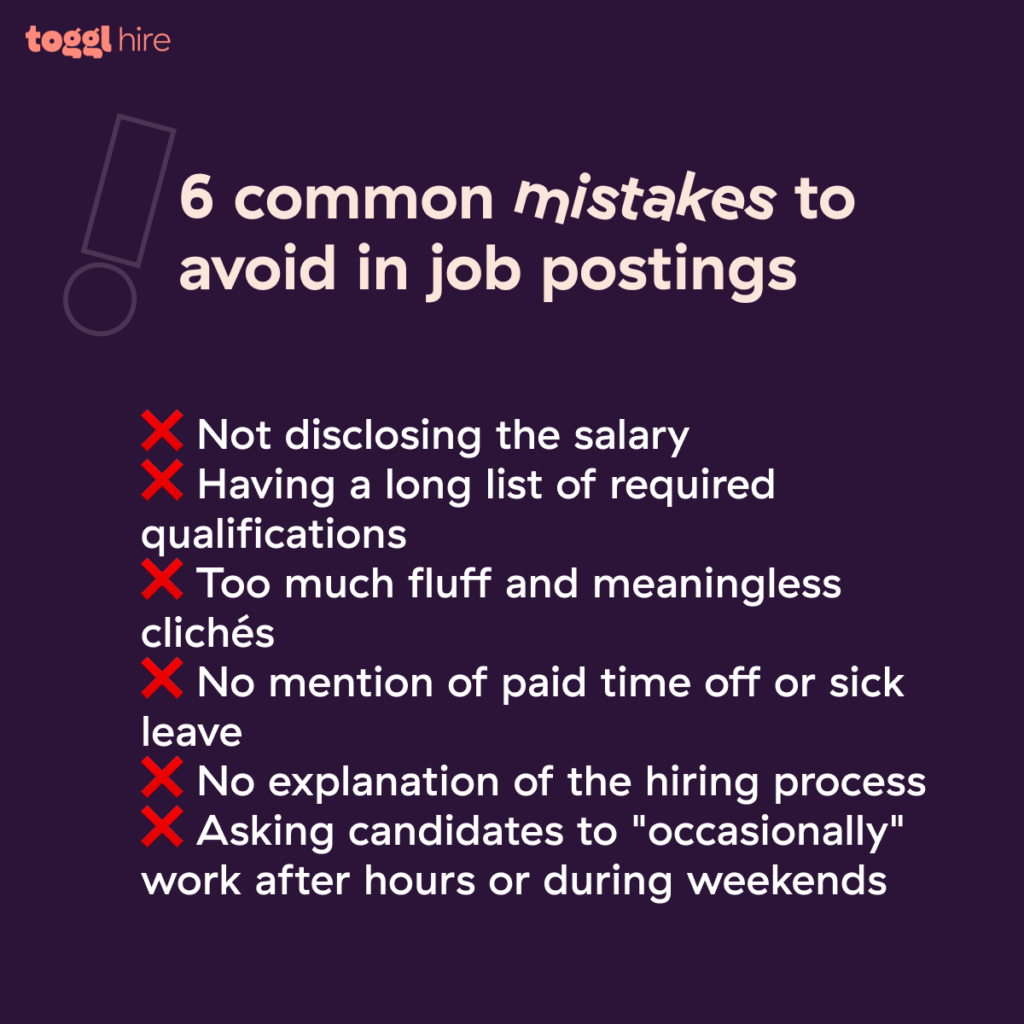Why wait for candidates to come to you when you can take the reins?
This approach is called reverse recruiting, and it involves businesses employing tactics to actively seek out the best candidates — instead of the other way around.
Today, we’ll guide you through the practical steps of the entire reverse recruitment process, equipping you with the knowledge and tools to innovate your hiring process.
TL;DR — Key Takeaways
Reverse recruiting is a proactive approach that benefits both employers and applicants, either through the use of reverse recruiting services or by targeting passive candidates themselves.
Reverse recruiting services for applicants typically involve hiring a company to handle everything on their behalf — from identifying roles to applying, networking, and giving ongoing support.
For employers, it’s about working with reverse recruiting service providers to find the best hires. Benefits include lower hiring costs, better applicants, and increased employee satisfaction.
Unlike traditional recruiting, job seekers pay for reverse recruiting services to find better positions and reduce the level of stress involved in the hiring process.
Reverse recruiters typically charge a percentage of the annual salary for the role or a fixed monthly fee. The cost can range from $600 to $5,000 and up.
What is reverse recruiting?
Reverse recruiting is a strategy in which employers proactively identify and engage with potential candidates before they apply for a job.
This approach flips the traditional hiring process upside down to target passive candidates—those who may not be actively looking for new job opportunities but are open to the right offers.

For recruiters, reverse recruiting lets you widen your talent pool, gain access to qualified candidates who could be a better fit for your culture, and focus on those with solid career prospects.
Candidates who want to go the extra mile and broaden their job search also use reverse recruiting services. These services give them access to exclusive job openings, personalized career advice, and the opportunity to leverage recruiters’ extensive networks.
Reverse recruiting is just one of the many ways you can target passive candidates. Looking for more ideas? We’ve got a few: 22 Creative Sourcing Strategies to Attract Passive Candidates
What do reverse recruiting services usually include?
Reverse recruiting services include all the activities that help hiring managers and candidates find the right match. Think of it like real estate agents, helping both the seller and buyer get the best deal on the market.
Examples of these services include finding open positions, sending out bulk applications for candidates, getting in touch with the hiring manager or recruiter, and managing communications on their behalf.
Here’s what candidates can expect to get when hiring reverse recruiting companies.

Job search and application management
Reverse recruiting companies scour different job boards and platforms like LinkedIn to apply on behalf of candidates. They customize applications and resumes according to the job description, making sure that the application doesn’t get thrown out because it lacks specific keywords required by the applicant tracking system.
So, instead of starting out the job search by browsing through open positions, candidates go the other way around. They tell the recruiter what they know, how long they’ve been doing it, what kind of jobs they want in the future, and supply relevant career documents. The recruiter then finds these roles and applies to them on their behalf.
Networking efforts
When hiring reverse recruiting companies, candidates can expect the reverse recruiter to use platforms like LinkedIn to connect with relevant people in their respective industries.
In this context, you can think of them like a career coach who works to strategically make the right connections with potential employers, talent acquisition partners, managers, and anyone who can move the application process forward.
Communication
The reverse recruiter handles all the communication, from the application to the follow-up once the interview is done. Not only does this save the candidate valuable time, but it also helps keep everyone on the same page. The candidate still has to go through the interview and test tasks, though.
Support and collaboration
Reverse recruiting companies support candidates in finding the right jobs for their skills, keep candidates updated about the progress of their applications, and offer tips on how to maximize their job search resources.
Reverse recruiting services can help to improve the candidate experience, resulting in a higher job acceptance rate and setting the right foundation for better employee engagement and retention.
Compensation structure
Unlike traditional recruiters, who receive compensation from the hiring company, the fact that job seekers directly pay reverse recruiters emphasizes how individualized and client-focused the service is.
For employers looking to hire new talent, try thinking of ways to adopt the principles of reverse recruiting firms. Instead of trying to cast a wide net, set out to find the exact types of candidates that would be an asset to your business and invite them to apply for a specific role.
Benefits of reverse recruiting
Reverse recruiting can benefit both sides in the recruitment process. Although services can be pricey, they offer unparalleled help in the job search.
Candidates spend less time on job applications and find better roles thanks to customized resumes and job searches.
Employers get better hires because reverse recruiters leverage their expertise to only apply to those roles where the candidate is the best fit.
Here are some more benefits of reverse recruiting on both sides of the hiring coin…
For employers
Access to passive candidates: Reverse recruiters help you reach out to those candidates who typically don’t apply for new jobs but are open to hearing the right kind of offer. For competitive industries and roles, this can be a game-changer.
Time and cost efficiency: You don’t have to attend industry events, post on job boards, or go through lengthy rounds of sourcing. As an employer, you get quick access to the best talent in the job market while lowering your cost of hire.
Quality of hire: Employers typically get better hires from reverse recruiters because they work proactively to vet the candidates based on the specific requirements of the company hiring.
For job seekers
While the services of a reverse recruiter may be expensive for the average job seeker, the benefits far outweigh the initial investment.
Personalized job matching: Reverse recruiting companies find the absolute best opportunities for candidates based on their experience and relevant skills. Using a reverse recruiter in the job search ensures that once they are hired, candidates have higher job satisfaction and stay longer on the job.
Reduced job search stress: Job hunting is stressful, with 73% of job seekers feeling the stress. Reverse recruiting helps to alleviate some of that stress by finding the best companies for each candidate and applying for those roles on their behalf.
Networking opportunities: Reverse recruiting services act as a career coach that connects you with the right people in the right places. Having a network to tap into can set you ahead of those who apply without a point of reference.
How much does reverse recruiting cost?
The price of reverse recruiting services will vary depending on the recruiter. Some reverse recruiters charge job candidates a percentage of the annual salary for the position. While others charge a flat fee for their services, ranging from $600 to $5,000 per month.
If you’re a business looking to use reverse recruiting as a hiring tactic, you can expect them to charge a percentage of the annual salary for the role. That percentage will vary based on many factors: the industry, the type of role, seniority, and more.

Is the investment worth it?
For job seekers, it could mean finding a new job in weeks instead of months. The $600 spent on reverse recruiting companies could mean a fast track to a full-time salary, in which case it is money well spent.
For employers, it obviously depends on a wide range of factors. The average cost of hire in 2023 was $4,700. If you’re hiring for a specialized, senior-level role that would take months to fill, using reverse recruiting services could help you save massive amounts of time and money.
Tips for working with a reverse recruiter
Whether you’re a job applicant or a business looking at using reverse recruiting for hiring, here are some handy tips to help you in the process. Remember, reverse recruiting needs to work for your specific situation, so adjust your approach for the best results.
Define your goals
Regardless of which side of the recruitment process you find yourself on, you first need to determine what you want to get out of it. It’s best to set your expectations at the beginning of the relationship to avoid future disappointments.
For job applicants, this could be:
Identifying where their career should be going
Having someone navigate the salary negotiations to get a higher-paying job
Getting a better work environment compared to their current position
For a business using a reverse recruiting service, this could be:
Cutting down on your time to hire/time to fill
Finding candidates that tick the right boxes
Shortening the onboarding period
If you’re a candidate looking to find your next role, remember that a reverse recruiter is not a guarantee for your dream job or achieving your career goals. You still need to do a lot of the work and provide the right information to guide the right communication.
Employers also need to realize that meeting their reverse recruiting goals is dependent on many internal and external factors. For example, if you have poor employer branding, your reverse recruiter is going to have a hard time helping you out.
Be open to feedback
Reverse recruiters work with a variety of different candidates and companies. No matter which side you’re on, they can provide precious information that will shorten the job search for everyone involved.
If you’re applying for a role, the reverse recruiter could tell you how to fix your cover letter to get better job offers, how to improve your personal brand to stand out in the job market, how to become better at interviewing, etc.
For businesses, the recruiter can give you an insider perspective and tips on how to create job ads that align with your ideal candidates’ career paths, which benefits to offer, and more.
🔥 Speaking of tips on how to create job ads. Here are a few to ensure you’re on the right track…

Leverage their network
Besides using cutting-edge technology, reverse recruiters have extensive networks that can help applicants with their career aspirations.
To make the most out of your reverse recruiter, use this asset to its full extent: attend online and in-person industry events, participate in online communities, and meet up with the leads provided by the recruiter.
Even though not all of these will result in the applicant getting a full-time job, they increase their chances of standing out to the right people.
Is reverse recruiting worth it?
Like most things, it’s not for everyone or for every role, but in certain cases, reverse recruiting makes a lot of sense for applicants and businesses.
For job seekers
Using reverse recruiting in your job search can get you access to roles you typically wouldn’t be able to get. The personal recruiter does a lot of the heavy lifting for you, reducing your stress and freeing up your time, potentially even saving you money overall.
However, keep in mind that for the relationship to work, you need to have a lot of trust in both the recruiter and the process. Even more importantly, once you get to the interview or get hired for the job, you need to be on the level displayed in the application process.
For businesses
Using reverse recruiting can save hundreds of hours and yield better applicants who stay with your company for longer periods of time. If you’re struggling to fill a role because of your industry, the seniority, or the specific requirements of your business, reverse recruiters can be of huge help.
The downside is that reverse recruiting just may not work for you. Carefully evaluate your goals, priorities, needs, and budget before opting to fill your open positions with a reverse recruiting firm.
Hire better with skills assessments
As a company, you’re going to have a nice variety of applicants to choose from if you build a good talent pool. Even if someone didn’t work out as a hire before, they may be a potential asset in the future. To get to this stage, however, you need to work on your employer branding, and skills tests can help massively, too.
With skills tests, hiring managers get access to a database of pre-qualified applicants, along with the results of their tests. For applicants, completing these tests means building up their skills profile and getting an objective assessment of their knowledge and experience.
With Toggl Hire, you can do both.
👉 If you’re hiring, sign up for your free account and start testing your candidates’ skills today.
👉 If you’re a job seeker, check out our Candidate Portal to stand out in front of potential employers!
Mile is a B2B content marketer specializing in HR, martech and data analytics. Ask him about thoughts on reducing hiring bias, the role of AI in modern recruitment, or how to immediately spot red flags in a job ad.







